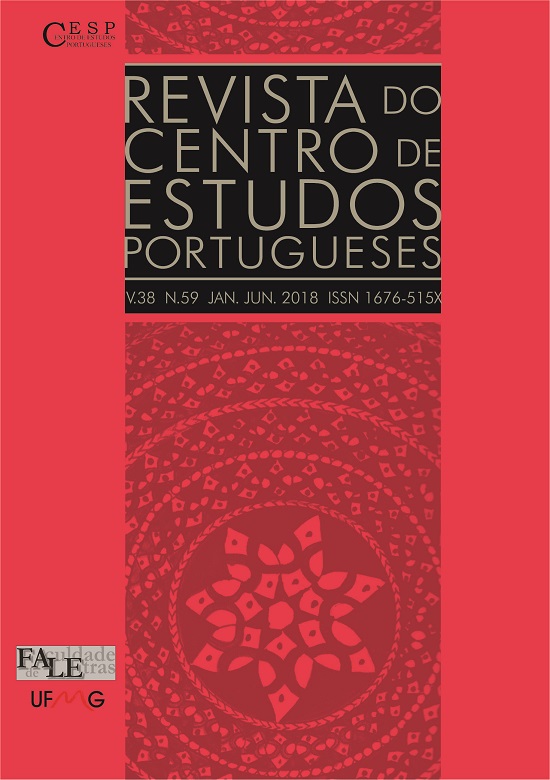A representação do fantástico maravilhoso na literatura de Mário Cláudio / The wonderful fantastic representations in the literature of Mário Cláudio
DOI:
https://doi.org/10.17851/2359-0076.38.59.71-87Palavras-chave:
Portugal, imaginário, narrativa, história, imaginary, narrative, history.Resumo
Resumo: Neste estudo, observa-se que a representação do maravilhoso fantástico fundamentada pelo imaginário de heróis, prodígios e bestiários contribui para o grande questionamento histórico-sociológico que por essência constitui parte da produção literária de Mário Cláudio: a alienante existência da humanidade que a distancia de sua essência plural e, conseqüentemente, de sua essência criativa. Nessa estratégia de representação, o fantástico maravilhoso que atua sobre o imaginário da tripulação de personagens de Mário Cláudio é significativa em termos de memória e identidade porque implica, sobretudo, um reposicionamento historiográfico, pelo viés cultural do tratamento de episódios históricos, um reposicionamento literário, pela forma complexa que sua narrativa manifesta tais imaginários, e, por último, um reposicionamento sociológico, pelo alto teor crítico em que a presente imagem da mentalidade da nação é colocada, pois tudo se passa como se muitos de seus personagens fossem cegos, acostumados ao pequeno e imaginário mundo que os circunda.
Palavras-chave: Portugal; imaginário; narrativa; história.
Abstract: In this study, is observed that the representation of the fantastic fantastic based on the imaginary of heroes, prodigies and bestiaries contributes to the great historical-sociological questioning that is essentially part of the literary production of Mário Cláudio: the alienating existence of humanity that at distance its plural essence and, consequently, its creative essence. In this strategy of representation, the marvelous acting on the imagery of the character crew of Mário Cláudio is significant in terms of memory and identity because it mainly implies a historiographical repositioning, the cultural bias of the treatment of historical episodes, a literary repositioning , by the complex form that his narrative manifests such imaginaries, and, finally, a sociological repositioning, by the high critical content in which the present image of the mentality of the nation is put, since everything happens as if many of its personages were blind, accustomed to the small and imaginary world that surrounds them.
Keywords: Portugal; imaginary; narrative; history.










